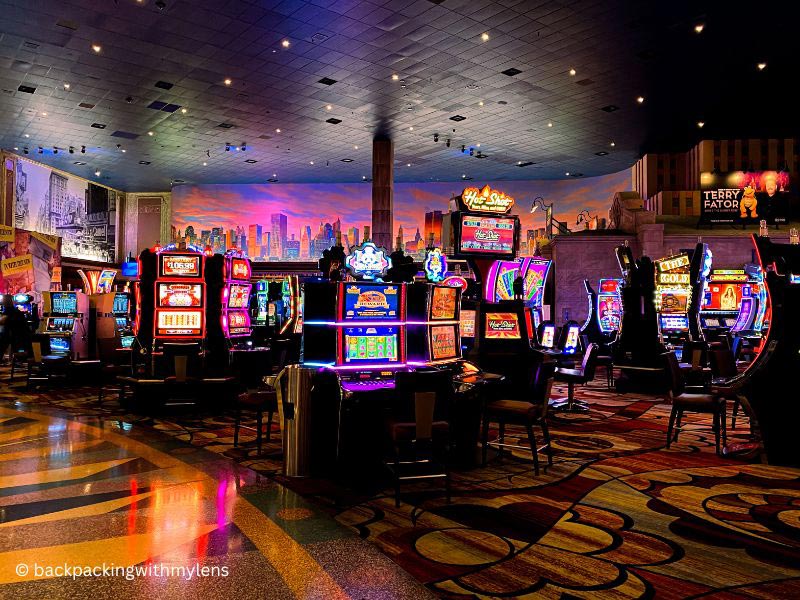
Beneath these glittering illuminations and those alluring noises of spinning wheels lies a vibrant realm in which innovation meets numbers: the making of casino games. While players flock to gaming establishments seeking excitement plus the possibility of striking it rich big, a vast amount of effort takes place behind closed doors to create the games they enjoy. From the starting concept to the final product that players engage with, numerous elements are brought together to ensure a captivating gaming experience.
Creators, technicians, plus game creators work together to merge cutting-edge technology with engaging gameplay features. Every aspect, from graphics plus audio elements to probabilities and payouts, is carefully crafted to draw in players and keep them entertained. Understanding the intricate process of how casino games are made reveals both the technical expertise involved but also the creative vision that transforms these immersive experiences to life.
Game Design Process
The game workflow begins with idea generation and concept development, where creators generate ideas for innovative casino games. This first phase typically involves identifying potential audiences and analyzing market trends. Designers consider factors like game mechanics, themes, and payout structures to create an engaging experience. Teamwork between game designers, mathematicians, and artists is crucial to guarantee a balanced concept.
Once a concept is chosen, the next stage involves creating prototypes and testing. Designers create a working version of the game to assess its playability and mechanics. This facilitates adjustments and refinements based on feedback from testers. Reiteration is key, as designers may go through multiple rounds of testing to optimize gameplay balance and user experience. This phase is crucial for identifying any possible issues before the game is finalized.
After testing, the game moves into development and production. This includes the technical aspects of coding the game software, integrating graphics, and ensuring compliance with gaming regulations. Quality assurance testing ensures that the game functions seamlessly across various platforms and devices. Once everything is polished, the game is prepared for launch, usually accompanied by marketing strategies to draw in players and generate excitement around the latest casino game.
Technology and Advancement
The development of gambling games has transformed significantly with progress in tech. Contemporary game design often features high-quality graphics, engaging sound effects, and dynamic animations that deliver a thrilling experience for gamers. Game developers use advanced software tools and programming languages to build these immersive gaming experiences. Additionally, the use of RNGs ensures fairness and unpredictability in outcomes, which is crucial for ensuring player trust and compliance with gaming regulations.
In recent years, the growth of online casinos has expanded the limits of game development even further. Developers are now able to build games that cater to a worldwide audience, integrating features such as live dealers and VR environments. This transition has encouraged innovation, leading to unique game mechanics and formats that enhance player engagement. Gaming on mobile devices has also become a major focus, driving developers to tailor games for smartphones and tablets, ensuring accessibility and ease of access for players on the go.
Cooperation among designers, artists, and mathematicians is crucial in the creation process. 49JILI Each team brings their expertise to make sure games are not only aesthetically pleasing but also mathematically sound and enjoyable. The integration of player feedback during testing phases allows developers to enhance game features and functionalities, ultimately leading to a favorable launch. As technology continues to advance, the potential for new game concepts and experiences is endless, promising an enticing future for casino games.
Testing and Quality Assurance
Once a gambling game has been created, it transitions to the critical phase of evaluation and quality assurance. This stage ensures that the game operates seamlessly and provides a balanced experience for players. Teams conduct thorough tests, including operational checks to ensure that all game features work as intended. Each element, from visuals to audio, is reviewed to ensure quality benchmarks are met.
In addition to operational testing, the game undergoes thorough compliance checks to meet regulatory requirements. Different jurisdictions have specific regulations governing game fairness and player protection. Quality assurance teams will check that the random number generators are operating correctly and that the game’s payout percentages correspond with industry standards. This detailed examination helps build trust with users and authorities alike.
Finally, pre-launch testing may be conducted with real players to collect opinions on user experience. This crucial insight allows developers to implement necessary adjustments before the public launch. Tackling any potential issues recognized during this phase helps ensure that users will have a seamless, captivating experience when the game goes live. The commitment to quality reflects the industry’s dedication to delivering enjoyable and dependable casino games.